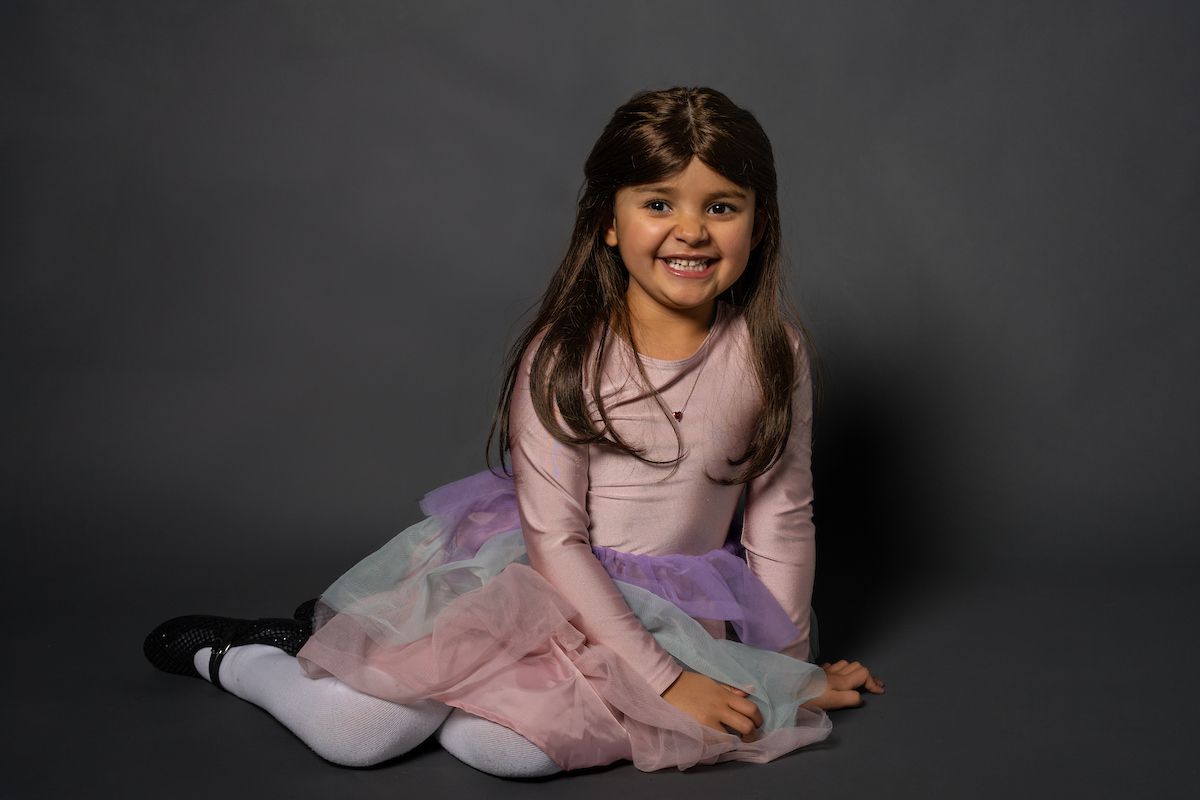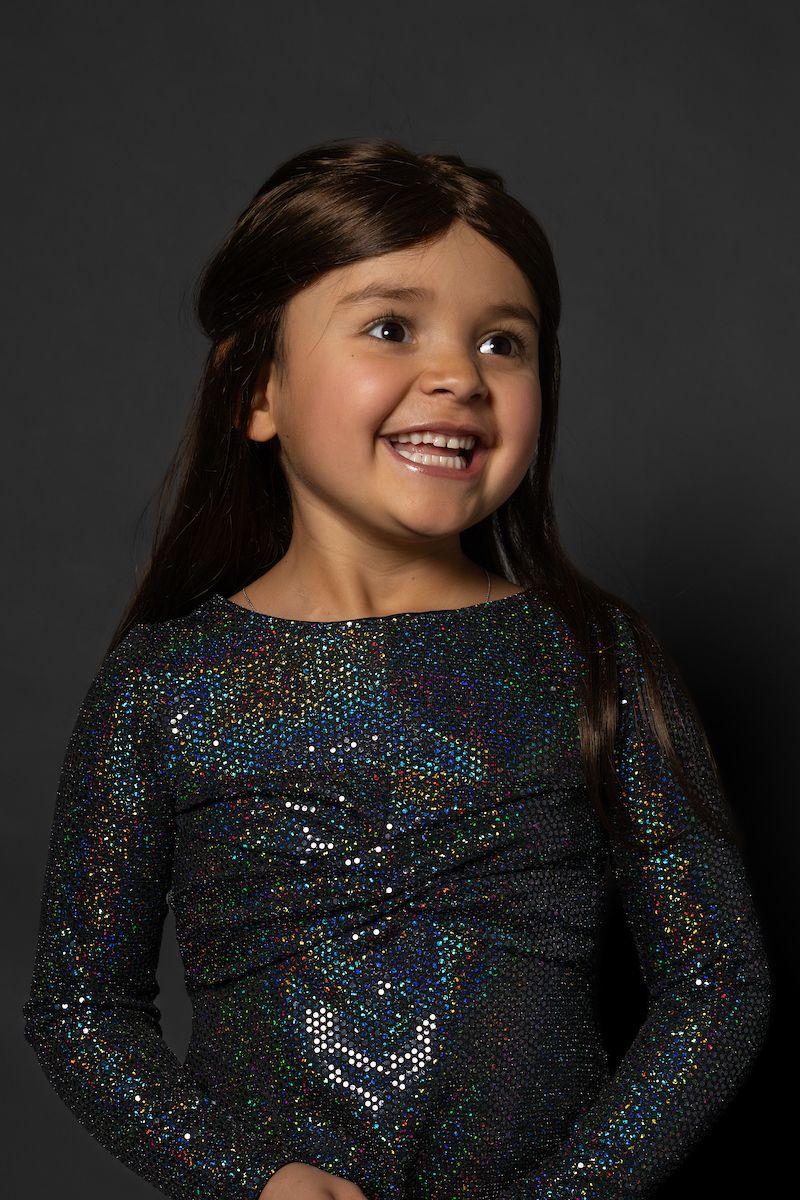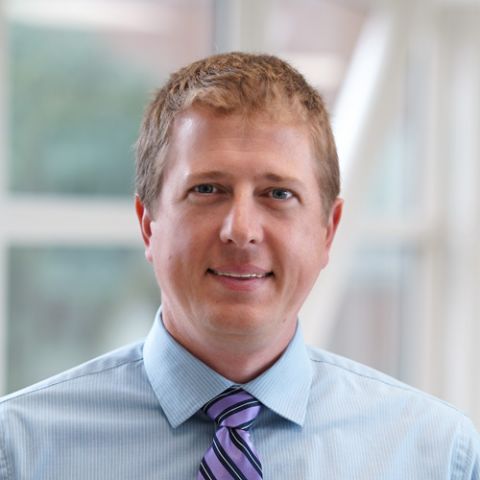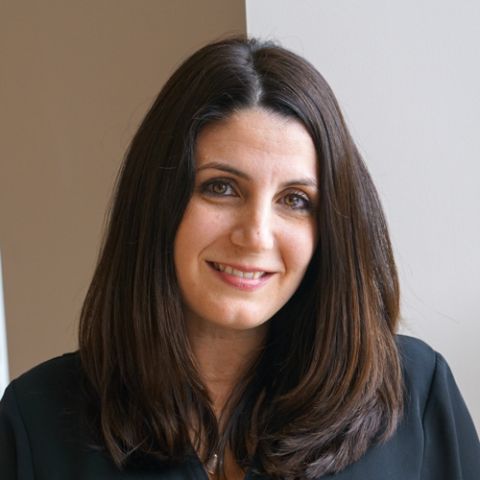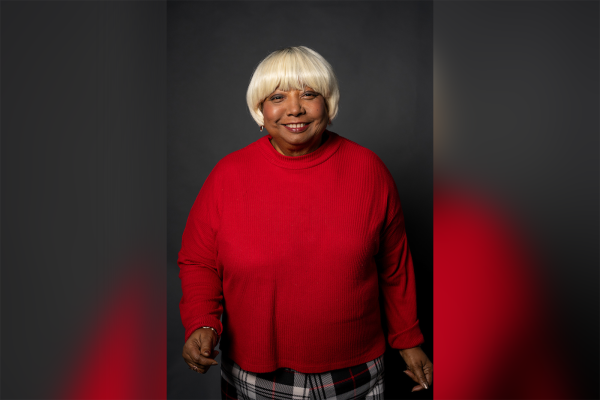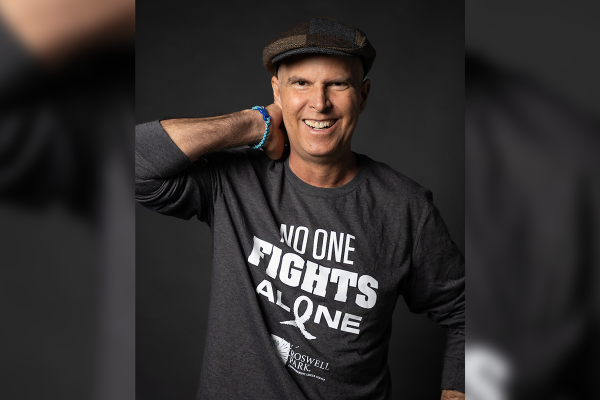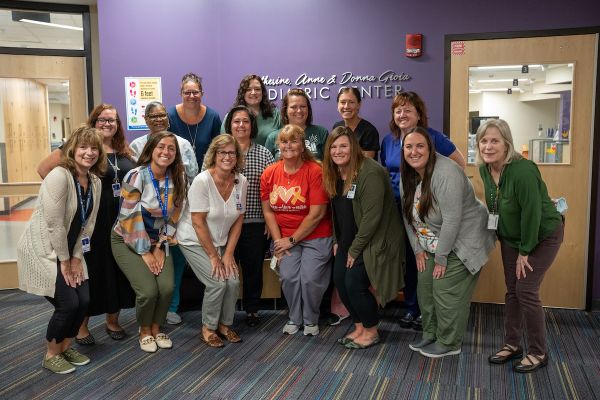Analisa Evanson is really excited about the upcoming birth of her second child, a boy. She’s also nervous, in the way all new parents are, about how the new child will affect life for her firstborn daughter, five-year-old Vada, who is still undergoing treatment for her second leukemia diagnosis.
“Vada was diagnosed originally in the middle of COVID, in November 2020. She was 19 months old,” Analisa recalls. “She was just a little peanut. I noticed bruising and she wasn’t eating. Her stomach was distended.”
After an initial consultation with “Doctor Google,” Analisa called their pediatrician, concerned her baby had leukemia, and was told to take her to urgent care to rule it out. Instead, after a few blood tests, she and her family were in their car and on their way to Oishei Children’s Hospital. Following a COVID test and an overnight stay at the hospital in case they tested positive, Vada was admitted and diagnosed with B-cell acute lymphoblastic leukemia (BALL). Within the next 24 hours, she was fitted with a port and enrolled in a clinical trial based at Dana Farber Cancer Institute in partnership with Roswell Park Comprehensive Cancer Center.
Her treatment proved effective and within a month, Vada was in remission, followed by two years of chemotherapy. “When she finished, she rang the bell and we thought we were done,” Analisa says. “She went back to school. She was three and a half years old.”
But in late March 2024, Vada came down with the flu and, a month later, still hadn’t been able to shake it. “You could see that she was pale, she was fatigued, she was out of breath easily. I called Roswell Park and said she wasn’t due for a checkup for another week but I was worried and couldn’t sleep, so I asked if I could bring her in early.”
The tests didn’t immediately confirm a recurrence of leukemia, but Analisa’s mother’s intuition took over. “I just knew. I didn’t tell Vada right away,” Analisa says, wanting to let her daughter have one more carefree weekend away from the hospital. Vada first had to fight with norovirus before she could return to treatment, including an immunotherapy known as blina that is given in a continual infusion over a long period of time. Her “blina backpack,” as Analisa called it, was removed at the end of February, and Vada is now back on maintenance chemotherapy for two years.
When this round of treatment ends, Vada will have just turned seven years old; her baby brother, not yet born when she was diagnosed the second time, will be a year old. “We’ll be celebrating so much then,” Analisa says.
An uncommon pediatric diagnosis
Vada’s relapse was “relatively uncommon” among pediatric patients who are treated for BALL, “especially the lower risk groups who respond well to treatment,” says Matthew Barth, MD, a pediatric oncologist with Roswell Park.
He considered whether Vada might need a bone marrow transplant, which could be a future treatment option should her cancer come back. But given how quickly she went into remission the first time, immunotherapy was the better choice.
“We were following a previously closed children’s oncology group trial that was looking at the introduction of blinatumomab, the immunotherapy she’s received, to try to improve the outcomes for patients with BALL, a trial that was specifically for relapse patients,” Dr. Barth explains.
The treatment is similar to what adults with the same disease receive and is being used more often among pediatric patients, he says. As an immunotherapy that targets only the cancerous cells, it doesn’t cause patients some of the more common side effects associated with chemotherapy.
Trying out new looks
One side effect Vada did have was losing her hair. As a little girl who loves to play dress-up and princess, that was hard for her, says Analisa, who purchased Vada’s first wig online. Then mother and daughter were connected to Roswell Park’s New Era Cap Foundation Elevate Salon.
“We heard about the salon from our child life specialist,” Analisa says. “Vada went with a completely different look – it’s dirty blond with bangs and right now her natural hair color is dark brown and very curly.”
At home, Vada has a cabinet filled with her array of wigs. “She has a rainbow wig from Halloween; she has a purple and blue wig. Her everyday wig is brown, but the wig she chose at Roswell Park was blonde,” says her mother, adding that at another organization Vada wanted to choose red hair, like the Little Mermaid. "We had to negotiate,” Analisa laughs. “But hopefully we’re almost done with wigs.”
Explaining cancer to kindergarteners
Brandee Aquilino, PSY-D, is Vada’s psychologist at Roswell Park and one of the few people Vada feels comfortable with, which made her the right person to visit Vada’s classroom and talk to her friends about cancer.
“Vada had a lot of concerns, especially about losing her hair again. She wore a wig to school and her classmates had questions about it. Analisa brought that to my attention. Roswell Park’s school outreach program is one of the things that we offer to each child and family upon diagnosis,” Aquilino says. The school outreach program is designed to help children of all ages understand a cancer diagnosis and treatment so they are aware of what’s going on with their classmate.
“Communicating about a cancer diagnosis in a classroom setting can be a delicate conversation. The goal is to help ease their minds about what’s happening to their friend who may look different and be missing a lot of school. Providing children with age-appropriate information can decrease anxieties and clarify misconceptions. It helps to create a supportive environment for both the child undergoing treatment and their classmates,” she adds.
It’s also a subject Analisa is hoping she doesn’t have to revisit again, because at 5, Vada doesn’t like to talk or hear about her cancer or treatment; she just wants it to be done so she can focus on being a kid.
“Our team has been amazing. Vada’s amazing. She’s the strongest girl I know,” Analisa says of her daughter.
When asked if Vada is excited to be a big sister, Analisa isn’t sure. “I think once he comes home, she’s going to love him. She’s already talking about what she and baby brother can be for Halloween.”
Visit the Salon
Let us help you — The New Era Cap Foundation Elevate Salon is a specialty salon for all cancer patients experiencing hair loss due to treatment.
Editor’s Note: Cancer patient outcomes and experiences may vary, even for those with the same type of cancer. An individual patient’s story should not be used as a prediction of how another patient will respond to treatment. Roswell Park is transparent about the survival rates of our patients as compared to national standards, and provides this information, when available, within the cancer type sections of this website.
